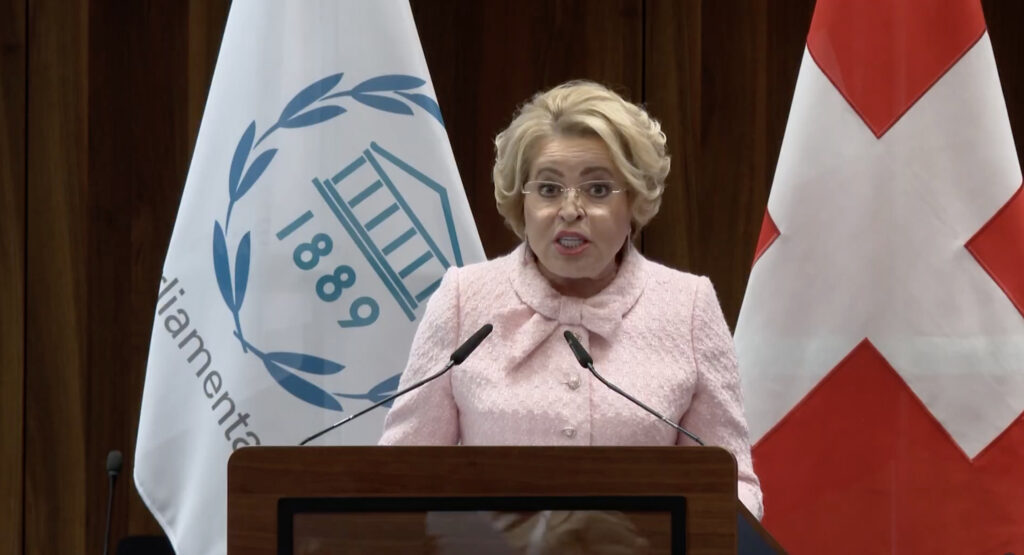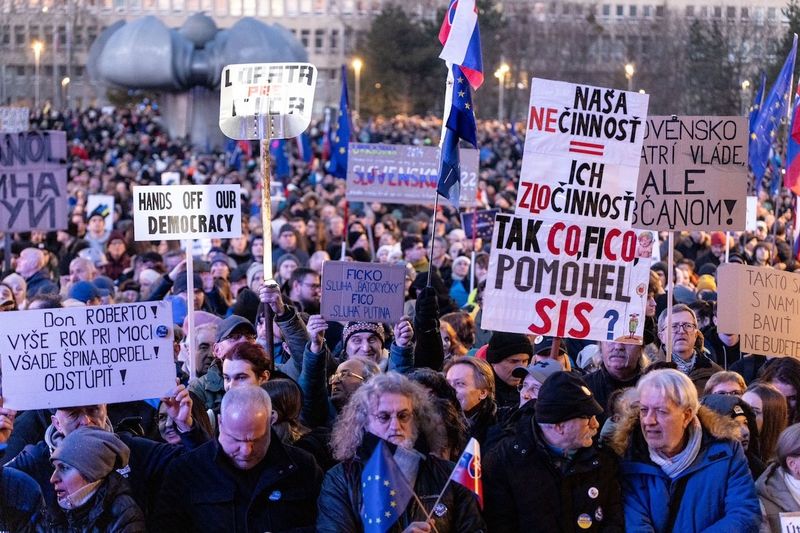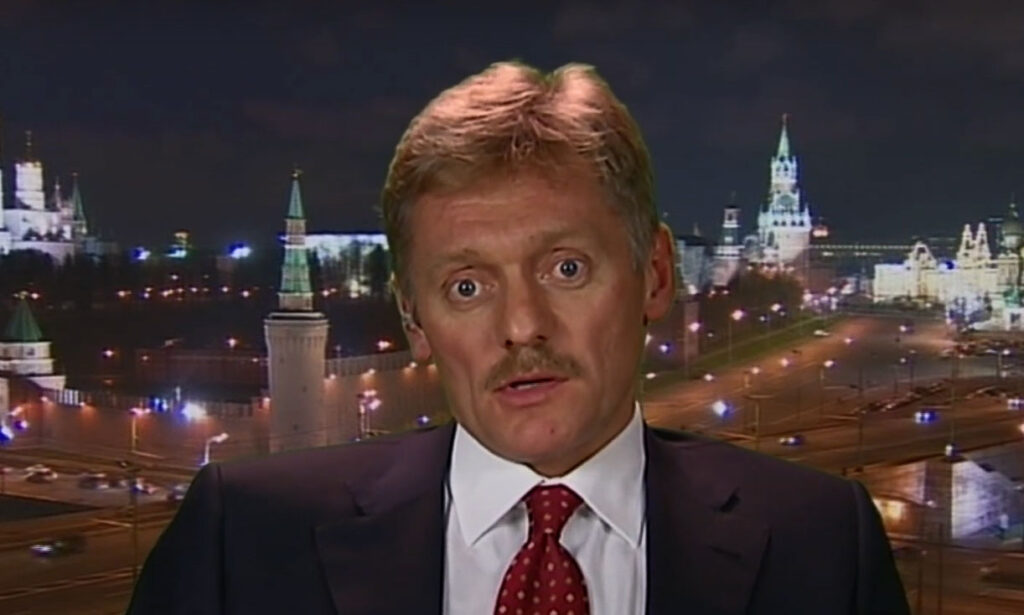Dozens of politicians boycott Russian sanctioned official invited speaking at conference in neutral Switzerland

Dozens of parliamentarians from various countries staged a coordinated walkout during a speech by Russian Federation Council Chairwoman Valentina Matvienko at the World Conference of Speakers of Parliaments in Switzerland on 30 July.
Why the mass walkout? According to Ukrainian Parliament Vice-Speaker Olena Kondratiuk, it sent a clear message about Russian aggression.
“This is a walkout against the aggressor,” Kondratiuk said, describing tears in her eyes as she watched international colleagues leave.
The half-empty hall, she argued, showed exactly how democratic parliaments view Russia.
Czech Parliament’s Chamber of Deputies Speaker Marketa Pekarova Adamova also made her reasoning explicit. She refused to be “a prop in the lies on which the criminal Kremlin regime is based.”
“She herself bears personal responsibility for the crime of aggression and all subsequent Russian atrocities after publicly approving the use of armed forces on Ukrainian territory,” Adamova wrote.
Better to spend time with colleagues “who support Ukraine in its fight for freedom and democracy,” she added.
But why was Matvienko allowed into Geneva at all? Ukraine’s Foreign Ministry had called her conference participation “disgraceful.” Spokesman Heorhii Tykhyi put it bluntly: her place should be “in the dock, not at international conferences.”
Here’s the problem: Matvienko appears on EU sanctions lists related to Russia’s invasion. So does much of the Russian delegation. Switzerland honors these sanctions—with one exception. The country permits sanctioned individuals to enter when visiting international organizations based there.

What had Matvienko been saying? Two days earlier, she invited international parliamentarians to visit occupied Ukrainian territories and see the “Alley of Angels.” This is a memorial in Donetsk that Russian forces erected allegedly commemorating children killed by Ukrainian forces in the conflict, which is considered a Russian propaganda narrative as there is no independent proof and convincing evidence.
Earlier, Ukraine’s Security Service charged Matvienko in absentia in 2024 under multiple articles. According to investigators, she signed parliamentary decisions authorizing Russian troop deployment in Ukraine. She also approved ratification agreements for annexing occupied Ukrainian territories. She faces additional charges including incitement to wage aggressive war, for which Ukraine plans to prosecute her at a Special Tribunal.


